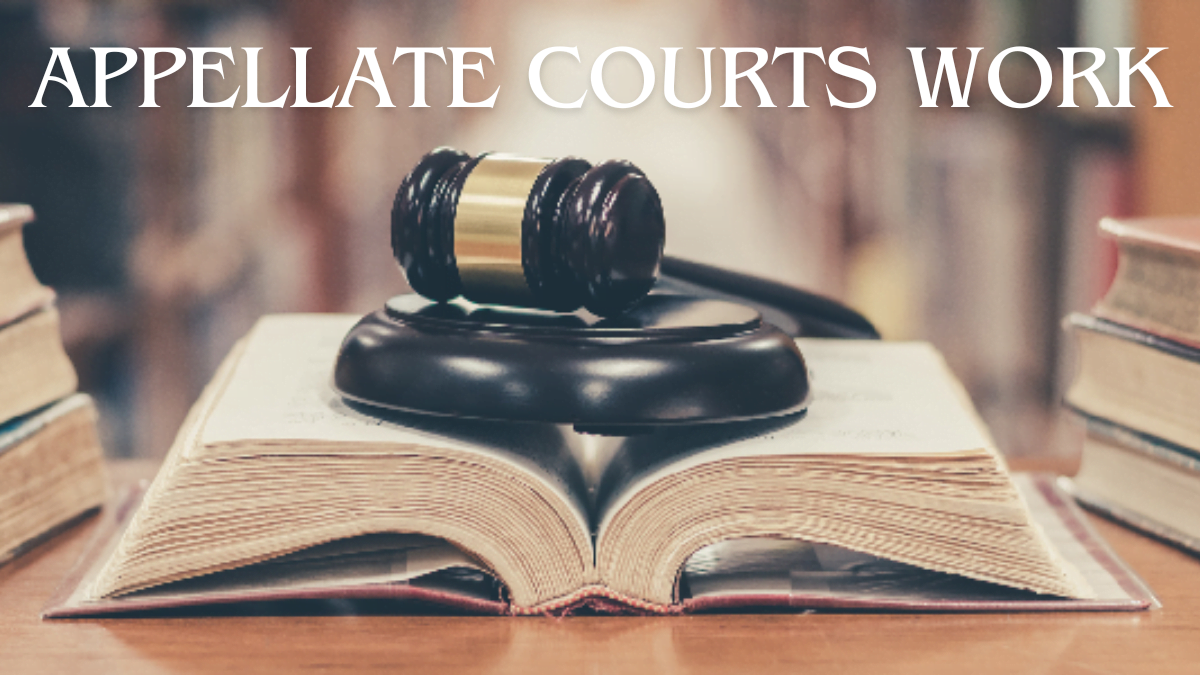Appellate courts act as essential mainstays of the legal system, giving a crucial road to reviewing decisions made by lower courts. Whether managing civil matters, for example, contract disputes or exploring complex criminal cases with extensive implications, a profound understanding of how appellate courts work is essential.
This article will dig into the inner workings of appellate courts, investigate the roles played by federal appeal lawyers and criminal appeal lawyers, and inspect how these legal professionals explore the complicated appellate process.
Construction of Appellate Courts
Appellate courts are regularly organized progressively, with different levels that fill unmistakable needs. At the federal level, the US Supreme Court remains as the most noteworthy appellate court, with intermediate appellate courts, for example, the US Courts of Appeals functioning beneath it.
Essentially, state appellate courts follow a comparative progressive design, frequently with the most elevated state court alluded to as the Supreme Court and intermediate appellate courts underneath it.
The Appeals Process
At the point when a party contradicts a decision delivered by a lower court, they have the option to document an appeal to look for review by a higher court. This process includes submitting legal briefs illustrating the arguments and reasons for the appeal.
Federal appeal lawyers specialize in exploring the intricacies of federal law and methods, ensuring that appeals are documented accurately and really to expand the possibilities of an ideal outcome for their clients.
Reviewing Legal Issues
One of the essential functions of appellate courts is to review legal issues rather than reconsidering real factors or hearing new verification. This means that appellate adjudicators focus on choosing if the lower court precisely applied the law and legal principles to the case.
Federal appeal lawyers play a crucial role in distinguishing expected legal blunders and creating enticing arguments to support their clients’ positions before the appellate court.
Oral Arguments
In some cases, appellate courts hold oral arguments where attorneys put forth their perspectives and respond to questions from the appointed authorities. These arguments allow a more unique trade of thoughts and clarification of legal places.
Skilled post-convictionlawyers succeed at articulating complex legal arguments influentially during oral arguments, utilizing their expertise to advocate for their clients’ advantages successfully.
Decision Making
After exhaustive review, appellate courts issue decisions that can confirm, converse, or remand the lower court’s decision. Confirming a decision means concurring with the lower court’s decision while switching it involves differing and changing the outcome. Remanding a case includes sending it back to the lower court for additional procedures based on the instructions or discoveries of the appellate court.
The Role of Criminal appeal lawyers
Criminal appeal lawyers specialize in dealing with appeals connected with criminal cases, where the stakes are much of the time high and the consequences significant. These attorneys have expertise in regions like constitutional rights, evidentiary issues, and condemning guidelines.
They meticulously review trial records, legal documents, and case law to distinguish justification for appeal and advocate vivaciously for their client’s rights and interests.
Standard of Review
Appellate courts apply various standards of review contingent upon the idea of the legal issues included. For questions of reality, they normally concede to the lower court’s discoveries except if there is an unmistakable blunder or maltreatment of discretion.
In any case, for questions of law, appellate courts exercise more examination and may upset lower court decisions assuming they track down legal mistakes, misinterpretations, or violations of constitutional rights.
Importance of Legal Research and Examination
Successful appellate advocacy requires broad legal research and examination. Federal appeal lawyers dive into rules, regulations, points of reference, and legal commentary to assemble strong legal arguments.
They likewise stay refreshed on late court decisions and changes in the law that might impact their cases, ensuring that they are well-ready to introduce undeniable claims before the appellate court.
The Role of Point of Reference
Appellate courts depend vigorously on points of reference, or past court decisions, to guide their decisions and ensure consistency in the application of the law. This principle of gaze decisis advances stability and consistency in the legal system.
Post-conviction lawyers skillfully utilize points of reference to reinforce their arguments and convince appellate-appointed authorities to follow laid-out legal principles in their decision production.
Final Word
In conclusion, appellate courts serve an essential function in upholding law and order and ensuring justice is directed decently and fair-mindedly. Federal appeal lawyers play crucial roles in exploring the complex appellate process and pushing for their client’s rights and interests.
Brownstone Appeal Lawyers embody the dedication, expertise, and commitment required to prevail in appellate advocacy, settling on a believed decision for clients looking for exceptional appellate representation and legal guidance.
